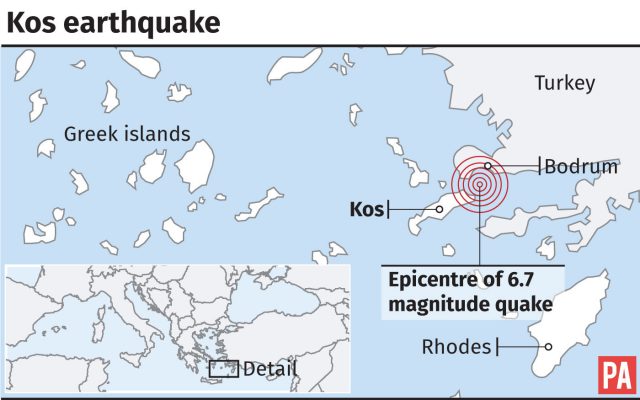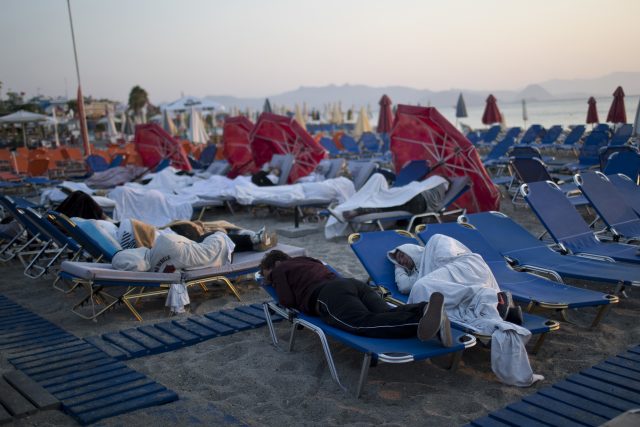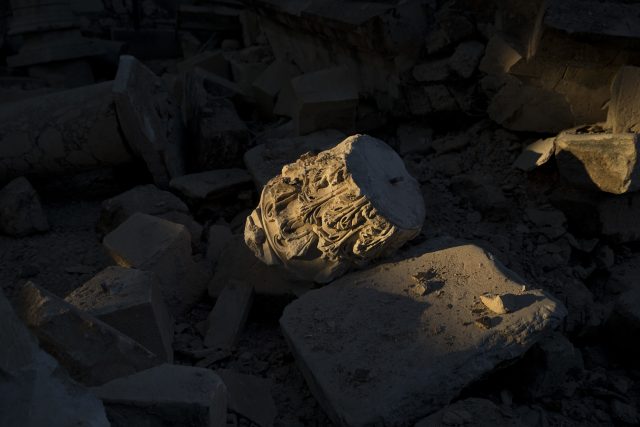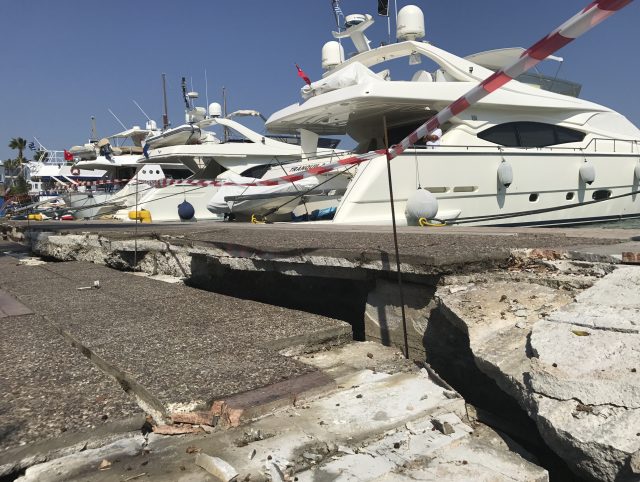Experts are examining the damage to cultural monuments and infrastructure on the eastern Greek island of Kos, a day after a powerful earthquake killed two tourists and injured nearly 500 others in the Aegean Sea region that stretches to Turkey’s sprawling coast.
Residents and tourists were still jittery as a series of aftershocks continued to rock the island.
A tremor measuring a preliminary 4.4 magnitude struck at 8.09pm local time (6.09pm BST), sending residents and restaurant customers running towards the middle of the town’s main square, as far away as possible from buildings.

Sixteen minutes later, a second 4.6-magnitude tremor struck, the Athens Geodynamics Institute reported.
The first tremor had its epicentre only 12 miles north-east of Kos at a depth of 6.2 miles.
Hundreds of residents and tourists spent Friday night sleeping outdoors on the island, too afraid to return to their homes or hotels after the quake that struck early on Friday.

Many camped out in parks and olive groves, or slept in their cars or on beach and swimming pool lounge chairs.
The aftershocks on Saturday night meant that many would spend a second night outdoors.
During the day in Kos, churches, an old mosque, the port’s 14th-century castle and other old buildings that suffered in the quake were being checked by archaeologists and experts from Greece’s Culture Ministry.

The US Geological Survey measured the quake on Friday at magnitude 6.7, with Greek and Turkish estimates a fraction lower.
Prelim M6.7 earthquake Dodecanese Islands, Greece Jul-20 22:31 UTC, updates https://t.co/a4L8l90U5l, 392 #deprem tweets/min
— USGSted (@USGSted) July 20, 2017
Two men, a Turk and a Swede, were killed when a wall collapsed into a popular bar in the Old Town of Kos.
The most seriously injured in Greece were airlifted to hospitals on the mainland and the southern island of Crete, and at least two were still in critical condition Saturday.
The Turkish man’s parents were on the island making arrangements to repatriate his body by boat, possibly on Sunday.

Dozens of aftershocks have shaken the island.
John Grant, a 60-year-old tourist from Britain, said he felt safer sleeping outside.
“Coming from somewhere that doesn’t have earthquakes, you don’t understand,” he said from his makeshift bed on a lounge chair.
About 350 of the injuries occurred in Turkey, in Bodrum and other beach resorts, as people fled buildings and as a sea swell flung cars off the road and pushed boats ashore. Seismologists said the shallow depth of the undersea quake on Friday was to blame for the damage.
In Kos, the quake damaged the island’s main port, so ferries were being diverted to the smaller port of Kefalos on the island’s south-western coast.
Serif Damadoglou Soukri, the imam of Kos, said the greatest damage to Kos mosques was sustained by the central 17th-century Defternatar Ibrahim Pasa mosque, whose minaret, restored a few years ago, collapsed completely. Ancient columns also toppled over in the southern part of the 2nd-century agora in the main town.






